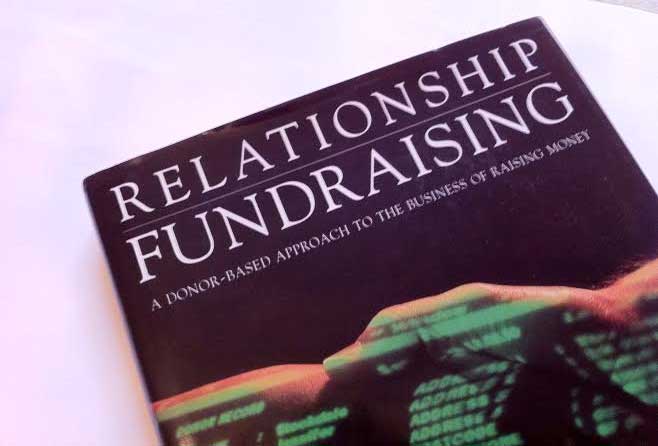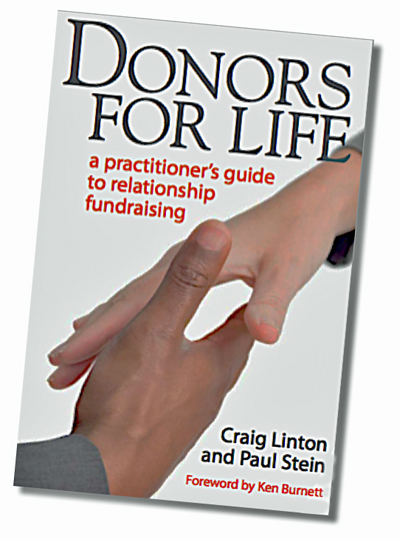Tip of the month? Perhaps if it was September 2006…
While I don’t think it is my usual nature to point the finger at other organisations involved in fundraising, I must confess that I have reached the end of my tether with Euro DM’s “First Monday” e-newsletter that describes itself as “The Profit Making Fundraising Newsletter” and is sent out monthly.
I have subscribed for a while. It is primarily, though not exclusively, focused on direct marketing. This is understandable, after all Euro DM provide services to charities to do direct marketing and so I can take (with a pinch of salt) the many exhortations of the newsletter to mail people more and more often. It is true too, that sometimes I have taken good and useful suggestions from it and occasionally it has challenged my own thinking about certain areas, which is definitely a good thing too.
As you might expect, there is a ‘but’ coming.
But, the newsletter does make some claims that I personally think are both inaccurate and worse, unsubstantiated (so far), to a point where I believe they become damaging to good fundraising practice.
Consider the statements below from their newsletters sent in January 2008, January 2010, and January 2011.
January 2011:
“2011 is the year when, hopefully, woolly ideas around loose “relationship fundraising” concepts can finally be killed off. The notion that people will give more if charities are nice to them was always flawed. Now its widely recognised that it doesn’t raise any money either”.
January 2010:
“2010 is the year when, hopefully, woolly ideas around loose “relationship fundraising” concepts can finally be killed off. The notion that people will give more if charities are nice to them was always flawed. Now its widely recognised that it doesn’t raise any money either.”
January 2008
“2008 is the year when, hopefully, woolly ideas around loose “relationship fundraising” concepts can finally be killed off. The notion that people will give more if charities are nice to them was always flawed. Now its widely recognised that it doesn’t raise any money either”
Sadly, I haven’t kept the e-mails from January 2007 or 2009, but I’m willing to guess what the content is likely to have contained.
So, on the 6th January this year, I e-mailed the address they gave for “questions of any kind” and asked the following:
“Having just read your First Monday newsletter I am interested in your assertion that “The notion that people will give more if charities are nice to them was always flawed” and that this is now “widely recognised” that it doesn’t raise any money either. Can you clarify who this is widely recognised by as it is quite a strong assertion to make and I am interested in what sources you have that justify your statement. I look forward to hearing from you.”
Having received no reply, on the 17th January I emailed again and said:
“I refer to my enquiry of the 6th January below, which, as yet I have not received a response to, despite your statement inviting “questions of any kind”. I am likely to use this as a topic for my blog on UK Fundraising and wanted to make sure you had been given ample opportunity to qualify the assertions you made in your e-mail of the 3rd January. I look forward to hearing from you soon.”
I’ve had no reply to either enquiry as yet.
This month, amongst their “Ten best things to know in fundraising” article they claimed the following: “Spend as little as you can get away with on newsletters unless you have definite proof that they raise immediate money or increase the performance of direct appeals. Most research shows that relying on newsletters to raise money for you is likely to lead to disappointment.”
Guess what was said in their e-newsletter of 9th March 2009, or indeed 3rd March 2008? I don’t have March 2007 but again I’m willing to hazard a guess as to content. It probably means that “research” is, at a minimum, three years old.
Firstly, I have some major concerns with statements like this. Obviously, every fundraiser can make their own mind up as to where they stand on the concept of Relationship Fundraising and whether it is woolly and ineffective or whether it helps build long-term, sustainable relationships with supporters that are not based on guilt, fear or other such negative emotions. You probably know where I stand on the issue.
Opinion is fine and healthy and good for debate – we are all entitled to have one. However, claiming “Now it’s widely recognised that it doesn’t raise any money either” and “most research shows that relying on newsletters to raise money for you is likely to lead to disappointment”, without providing definitive evidence to back this up is at best lazy and at worst downright misleading. I don’t know which it is in Euro DM’s case, but I would like to know exactly what research they refer to about newsletters and what evidence of recognition they have to prove Relationship Fundraising “doesn’t raise any money either”. After all they are pretty big claims to make and surely any fundraiser deserves some detailed proof before we blithely adopt them as fact?
Conversely, we have some quite significant research available to us offering evidence to the contrary (it is many years since Ken Burnett wrote his book on the topic (still required reading) and Adrian Sargeant authored Relationship Fundraising: How to Keep Donors Loyal (Nonprofit Management and Leadership, Volume 12, Issue 2, pages 177–192, Winter 2001). We published our own Mystery Shopping report in 2008 that included Focus Group research with charitable donors that clearly indicated a preference for a Relationship Fundraising model of engagement (this is still available as a free download from our website at www.johngrainassociates.com).
In fact, a simple Google search provides many examples of research papers and articles supporting the concept of Relationship Fundraising as a successful model. A search for research offering evidence to the contrary did not provide one single item that I could find.
Secondly, is it feasible to believe that assertions made four years ago still hold exactly true today? Having reviewed the e-mails from First Monday that I have kept since September 2006 (I know, I’m sad), I found that the content from that date was repeated exactly four years later in September 2010. There are many examples of this happening year after year in their e-newsletter content.
I would contend that since September 2006 times have actually changed quite significantly in many ways (fundraising techniques, the economic climate, and the rise of digital technology to mention but three) and that surely the expectations of readers of an e-newsetter of this kind are for it to keep up to date with developments and offer advice and suggestions accordingly – not merely recycle word for word the same content from nearly five years previous.
This implies to me that Euro DM’s thinking has not changed one iota from then until now and (to put it mildly) they are perhaps not putting quite the time and effort into their e-newsletter that they could – and frankly should.
Overall it leads me to conclude, that in my opinion the current First Monday newsletter is out of date and provides potentially harmful, not useful, advice to fundraisers – especially those coming across it for the first time.
I hope they can and will provide evidence to back up the claims they make – or stop making them. And I hope they change their approach of recycling out-of-date content over and over again for the good of every fundraiser in the sector.




